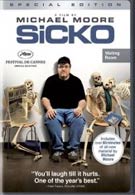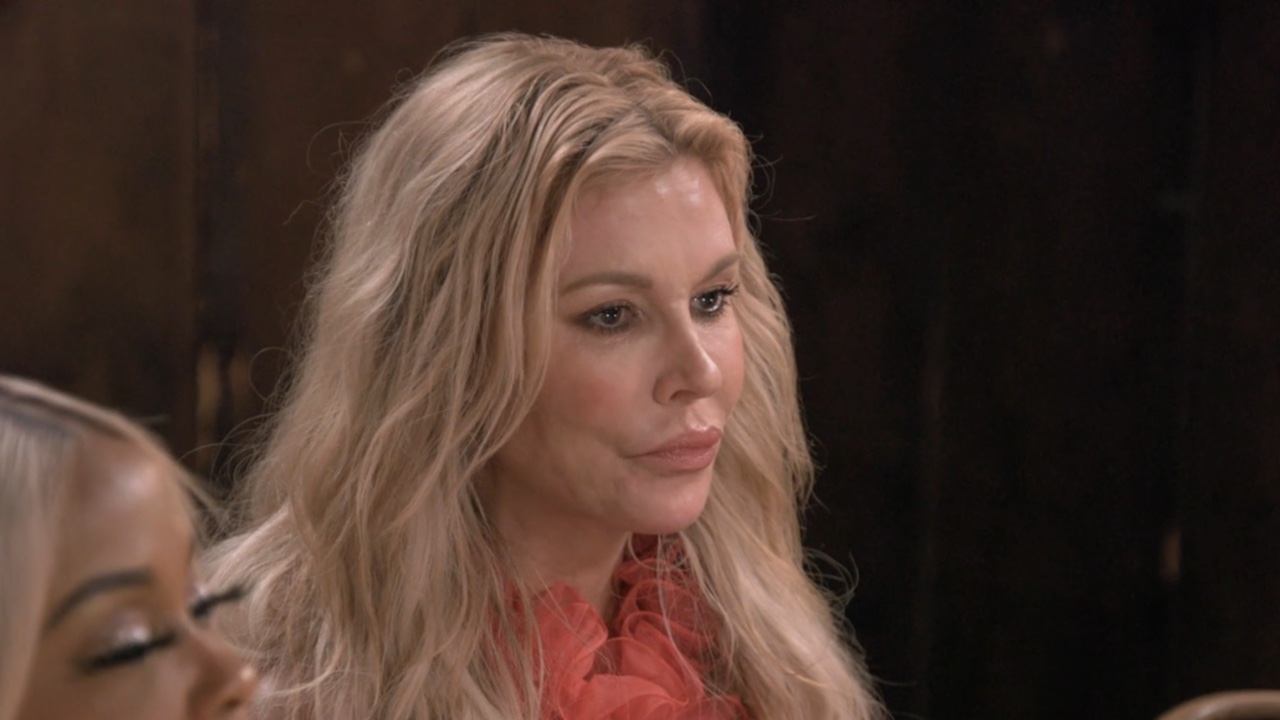Having never seen a Michael Moore movie before, I was instantly intrigued to see what an overweight American can offer in Sicko, his newest controversial film, this time about the United States health care system. Trying to go in with an open mind, Sicko quickly reveals itself as a film with a message that can’t be ignored or glossed over without choosing a side. The strength of the film lies in the fact that Moore has no compassion for the corporations of private health care or the drug companies that feed off of the middle class in monthly payments, yet refuse care daily when people need it most. To be clear, this is not a film about the lack of insured Americans, but about the Americans that are “covered” and the “game” of denying the insured care. Moore follows the lives of a select few Americans and hears their story of insurance denial that, in most of the interviews shown in the movie, lead to the death of the person that was “insured.” After the revelations and tales of denial, Moore then travels to Canada, France, Norway, even Cuba to show how socialized health care works. The comparison between U.S. care and government care in these other countries is sickening. Moore then leads some 9-11 rescue workers to the only place in the United States where free health care exists; Guantanamo Bay, Cuba. As predicted, terrorist prisoners get full care and exams for free while the rescue workers are turned away.
The strength of the film Sicko lies in the editing, music, and humorous narration by Moore himself. It is full of intense interviews, saddening life stories, and certainly builds on the frustrations and sympathy for people who have lost their homes and their hope, all because the government won’t step in to regulate the ripping off of citizens by corporations. Sicko is to health care as Supersize Me is to the fast food industry. Moore is asking for the government to realize that, “all men are created equal,” no matter how much medical need they have.
On the flip side, Moore doesn’t hesitate to leave out any negative attitudes toward socialized medicine from people in the countries that provide it. The only negatives seen in the whole movie are there to show how U.S. medical companies feel about not making money and actually having to provide care to the very people who pay for it. While the argument is wonderfully upsetting, it’s terribly one-sided. It’s clear from the start that Sicko is not a documentary, but a commentary on Moore’s views of the U.S. There is a clear agenda here that Moore sets from the start and as sound bites and clips come together, they splice in to make that point come across. The worst possible aspect of the film is that it’s true: people are going bankrupt and losing their houses due to medical expenses and the U.S. is the last place to look to be taken care of.
The point of Sicko is huge and hard to miss. Moore definitely has something to say and, of course, doesn’t pull any punches, but there is certainly not fair play for the defense to voice their disagreement. On the other hand I can’t imagine people watching this film objectively (key word: objectively) and then not start falling down the rabbit hole to aggravation and overall frustration with the governments’ lack of involvement in our health care with regard to controlling it, instead of profiting from it. What working mother wouldn’t want six months paid maternity leave, including a four-hour-a-day government worker coming over to do laundry, wash dishes, or make dinner all for free like in France? Who wouldn't want to know that, if you sever your hand, that you don’t have to choose, based on cost, which or how many fingers to reattach like in the U.S.? If nothing else, Moore shows something in Sicko that the government does not: sympathy. If there is anything good from making a film derived mostly from interviews it is leftover clips and unused footage from interviews. Why is that a good thing? Because that makes for a ton of extras. Not only are there interview leavings, but also travel footage and premiere special features.
The first extra is “Sicko Goes to Washington.” This shows Moore and leaders from Washington D.C. calling for the passing of H.R. 676 to provide full care to all US citizens. This piece is very serious and a dramatic call for action by the people that “should” be able to change the rough course we’re running on.
“This Country Beats France” opens by showing the news media slamming on how awful Moore is and pushing the propaganda for how broken the socialized health care systems are in France, Canada, and Cuba (For those keeping score at home, those are the places that are publicly free and hospitals don’t worry about profit). However, what Moore doesn’t mention in Sicko is that Norway is actually first on the human development list. This special feature is devoted to Norway. Even the prison system is considered an “Arena for Responsibility Development.” It’s obvious clips like these weren’t included because they aren’t relevant to health care but are still interesting. Most of the rest of the extras follow suite in this same manner: intriguing, strong, and with Moore’s smooth humor added in.
Exploring the notion that Americans actually hold fundraisers to care for themselves medically is “Uniquely American.” (How generous of us as a nation, to just give and give our after-tax dollars because the government won’t.) “What If You Worked For G.E. In France?” compares an employee that works for GE in France and her rights by her employer compared to those that work for GE in the States (same company, but different country). Don’t be surprised at the response. Compare the American employee's six-weeks (and get the baby in unassisted day care) to the six-month nurture and love on your newborn method. “Sister Mary Fidel” is a shorter clip of Moore talking to a Cuban nun about the freedom of religion in Cuba. “Who Would Jesus Deny?” takes it a step further and looks at our “freedoms” in the US by looking at a county in Texas where 58% of their population doesn’t have health care. Here the polite father of the church considers the idea of refusing care a “sin.”
Your Daily Blend of Entertainment News
One of the most intriguing and insightful extras is “More with Mike and Tony Benn.” Mr. Benn is the gentleman that was so interesting in the film to really look at the “middle” class and health care analytically. After 51 years in the British Parliament, Benn is a strong political figure and one can see why he was/is viewed as the working man’s advocate.
The final absorbing feature on the disc is “A Different Kind of Hollywood Premiere” The day before the actual studio Premiere, Moore set up just down the street on Skid Row to show the film to the poor, sick, and homeless. Moore's particular emphasis here is on the dumping of elderly patients by local hospitals, literally kicking them out of moving cabs onto Skid Row, it drives the point home once again that it’s not about the care you need, but the money you bring with you into the emergency room.
Following all of these extras comes more, shorter interview segments that didn’t make it into the film in the “Interview Gallery.” Pretty much all of these DVD extras just add fuel to the fire at this point to further frustrate the viewer with our government. In one clip someone says that France’s system works because the government fears the people (because they would protest and stop France from functioning), but in America the people fear the government, so they do nothing.
For everything that is on the disc, I’m glad there are this many extras and I imagine how hard it was for Moore to edit out a lot of great scenes because they didn’t relate to health care directly. Take the time to sit with Moore for the extra hour or so of special features and, as he says, “see who the real sickos are in this county.”

